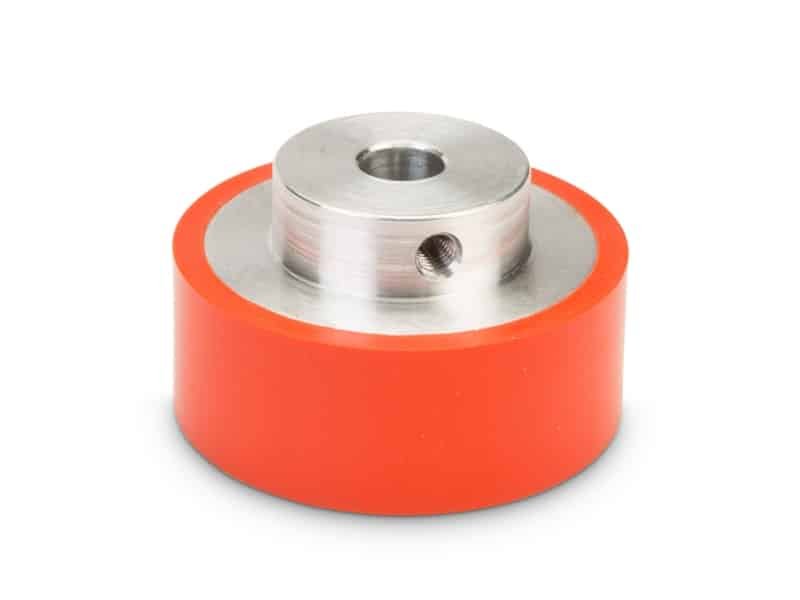Urethane Casting Service

We offer urethane casting service that suitable for low-volume production.
Urethane casting is an ideal solution for low to mid-volume production. It is an alternative to injection molding for prototypes and short production runs that product high-quality parts with smooth finishes and precise details. The urethane casting parts can mimic the properties of rubber, plastic, or even metal, which are widely used in various industries.
Erye provide end-to-end urethane casting services, from wide range of urethane formulation to final finishing, we can ensure each urethane casting parts meet your exact specifications.- Custom urethane formulation
- Fast turnaround for rapid prototyping
- Wide range Shore hardness options
- Custom colors & finishes
- Post-processing services
Urehane Casting Service is Often Used for
- Prototyping and Market Testing: Ideal for functional and cosmetic testing, allowing manufacturers to explore variations in size, strength, material, and color quickly.
- Low-Volume Production: Perfect for small batches, bridging the gap between prototypes and mass production.
- Specific Industries: Used in distribution centers for urethane molded bearings, printing for covered rollers, and wheels for skateboards or robots. It’s also suitable for FDA-approved parts, seals, and gasket covers.
Urethane Casting Service Material
Polyurethane is known for its strength, abrasion resistance, and adaptability. Depending on the formulation, it can mimic the properties of various thermoplastics and rubbers. We categoriize our urethane options based on key performance traits. Below are the material urathane material we offer.
| Material Name | Shore Hardness | Descritpion |
|---|---|---|
| General Purpose | Shore D 76-80 | It is a tough, impact-resistant material with a Shore 78D hardness, which is ideal for a wide range of applications, such as enclosure housings and concept models. |
| Rigid Clear | Shore D 80 | A strong and clear material that can achieve different finishes. Matte for a frosted look or high gloss for enhanced clarity. |
| Rubber-Like Polyurethane | Shore A 25-95 | A flexible elastomer with high elongation to break, offering excellent impact absorption and durability. |
| Clear Rubber-Like Polyurethane | Shore A 40-95 | A clear elastomer with high elongation, providing flexiblity and impact resistance. A matte finish gives it a grosted look, while a glossy finish enhances it is clarity. |
Benefits of Urethane Casting Service
- Cost-Effective for Low-Volume Production – Urethane casting is significantly cheaper than injection molding for small production runs, eliminating the need for expensive tooling.
- Fast Turnaround – Producing molds and casting parts takes only days, making it ideal for rapid prototyping and short-run manufacturing.
- Flexible and Rubber-Like Options – Soft, elastomeric urethane materials provide rubber-like performance, ideal for gaskets, seals, and flexible components.
- Custom Colors & Finishes – Pigments can be added for custom colors, and different finishes (matte, gloss, or textured) can be achieved without additional painting.
- Durability & Performance – Urethane parts offer excellent mechanical strength, impact resistance, and wear properties, even in demanding environments.
Application of Urethane Casting Parts
- Gaskets & Seal
- Connectors & Insulators
- Switch Housings
- Wear-Resistant Pads
- Protective Casing
The Basics of Urethane Casting
What is Urethane Casting
Urethane casting service is a manufacturing process that produces high-quality urethane casting parts in small to medium quantities. It’s often used for prototyping, market testing, and low-volume production, bridging the gap between rapid prototyping and full-scale manufacturing.
How Does Urethane Casting Work
Master Pattern Creation
A high-precision master pattern is produced using CNC machining or 3D printing. This pattern serves as the exact replica of the final part.
Custom Mold Fabrication
Liquid silicone is poured around the master pattern and left to cure. Once hardened, the mold is cut open, and the master pattern is removed, leaving a cavity for casting.
Material Preparation
The urethane resin is carefully mixed, with optional additives such as colorants or fillers added to achieve specific material properties.
Vacuum Casting
The liquid urethane resin is poured into the silicone mold under vacuum conditions, then the filled mold is placed in an oven at a controlled temperature, allowing the urethane resin to solidify and achieve its final mechanical properties.
Demolding & Post-Processing
Once cured, the part is removed from the mold, and any excess material or imperfections are trimmed or polished to meet the required specifications.
Have a Question?
